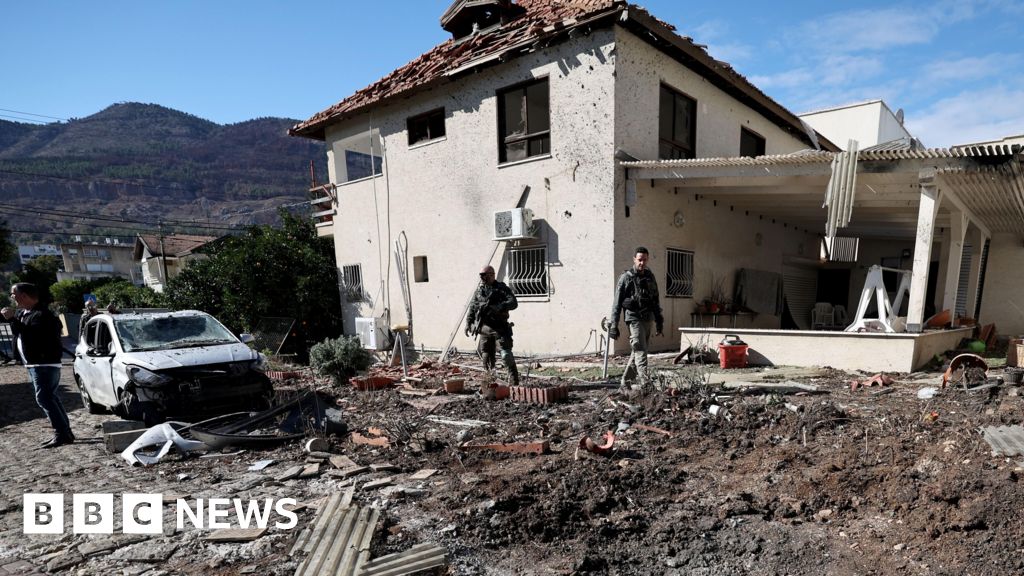But surrender is exactly what Netanyahu is being accused of by his political rivals – and some of his political allies too.
One poll yesterday suggested that more than 80% of Netanyahu’s support base opposed a deal, and many residents in the north of Israel – large numbers of whom have been evacuated from their homes – are angry too.
Shelley, an English teacher in Shlomi, said a ceasefire was an “irresponsible and hasty political decision”.
Rona Valency, evacuated from kibbutz Kfar Giladi on 8 October last year, told me she wanted to go home, and that a ceasefire was needed, but that the idea of Lebanese residents returning to these villages gave her “a real sense of unease and fright”.
From Kfar Giladi there are clear views of the Lebanese village of Odaisseh just across the valley.
“The only thing I can hope for is that Hezbollah will not infiltrate these villages and build a new network,” Rona told me. “Apart from completely erasing these villages, and having no people there, there is no real physical thing that can make me feel safe. It’s just, you know, hope.”
Her husband, Onn, said the key to security lay, not in the terms of the ceasefire agreement, but in people “understand[ing] again, where we live; understand[ing] some things that a lot of us forgot”.
He said he didn’t trust the Lebanese army, nor the Americans, to restore security along the border.
“I trust only our army,” he said. “I think if the army won’t be there, it will be very, very hard to get the citizens back.”

